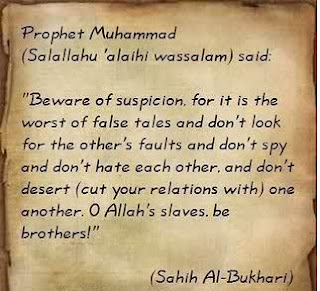“And if you fear
dissension between the two, send an arbitrator from his people, and an
arbitrator from her people. If they both desire reconciliation, Allah will
cause it between them. Indeed, Allah is ever Knowing and Acquainted.”
----(An-Nisa 4: 36).
----(An-Nisa 4: 36).
 My Friday Sermon (Jumu’ah Khutba) today is on the
subject of divorce (Al-Talaq).
My Friday Sermon (Jumu’ah Khutba) today is on the
subject of divorce (Al-Talaq).Islam places great emphasis on marriage in the sense that it is a sacred contract that cannot be broken for vain and trivial reasons.
Although Talaq (divorce/ repudiation) is allowed,
it must be considered that from among everything which is allowed, Talaq (divorce) is the most hated thing,
the most abhorred by Allah and it is permitted insofar that it does no unjust
damage.
It should in no way be used as part of some ruse which acts as a pretext for divorce. It can happen that the husband does not like a particular behaviour of his wife and that he has had enough of her. This is not sufficient to justify his request for divorce (Talaq). He must not consider only the negative side of his wife but on the contrary he must assess her good qualities that may well be greater than the defects. A separation may as well have a detrimental effect on the behaviour of the couple’s children (if any) who may become easy prey for Satan.
It should in no way be used as part of some ruse which acts as a pretext for divorce. It can happen that the husband does not like a particular behaviour of his wife and that he has had enough of her. This is not sufficient to justify his request for divorce (Talaq). He must not consider only the negative side of his wife but on the contrary he must assess her good qualities that may well be greater than the defects. A separation may as well have a detrimental effect on the behaviour of the couple’s children (if any) who may become easy prey for Satan.








